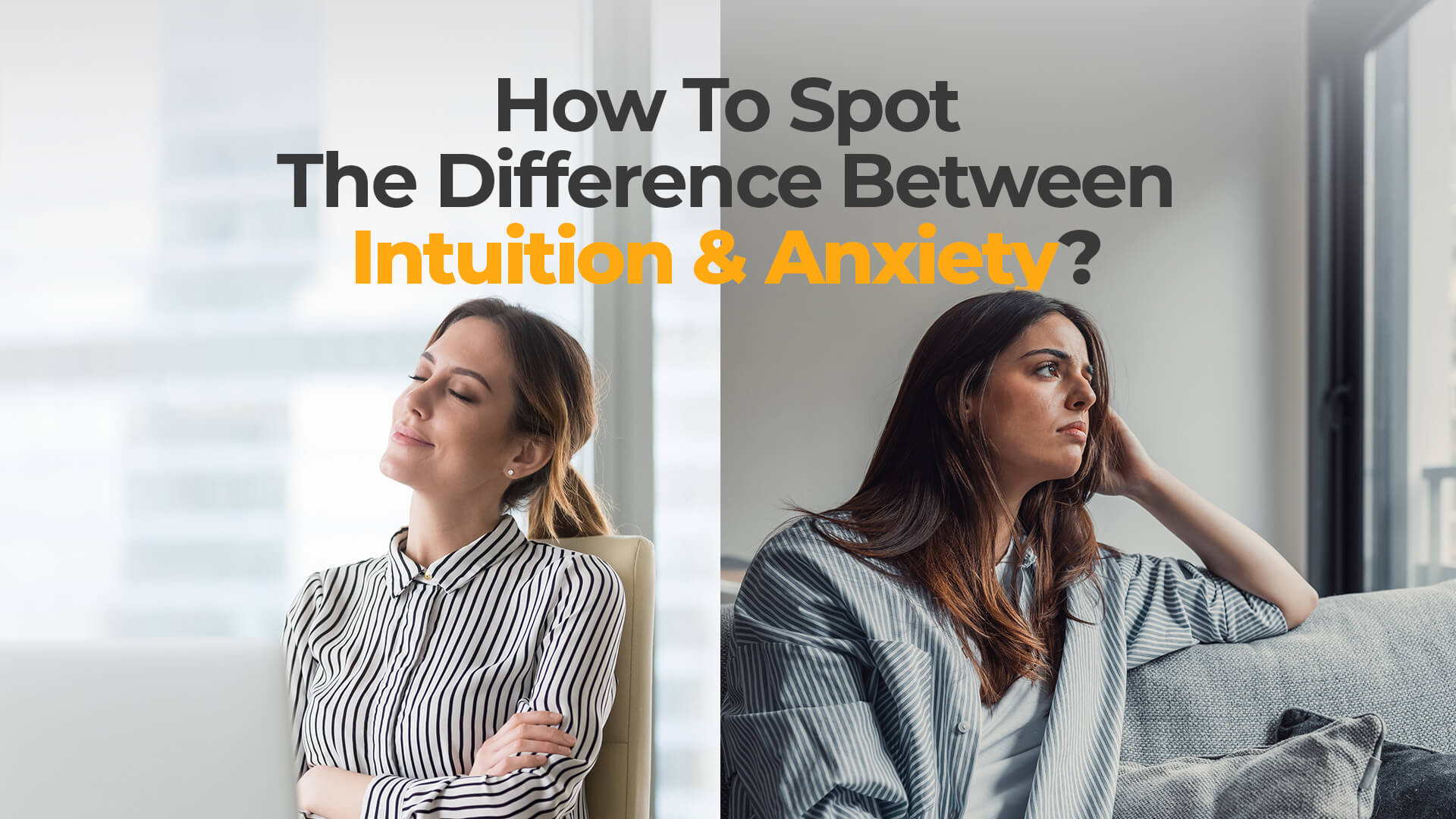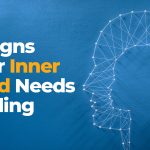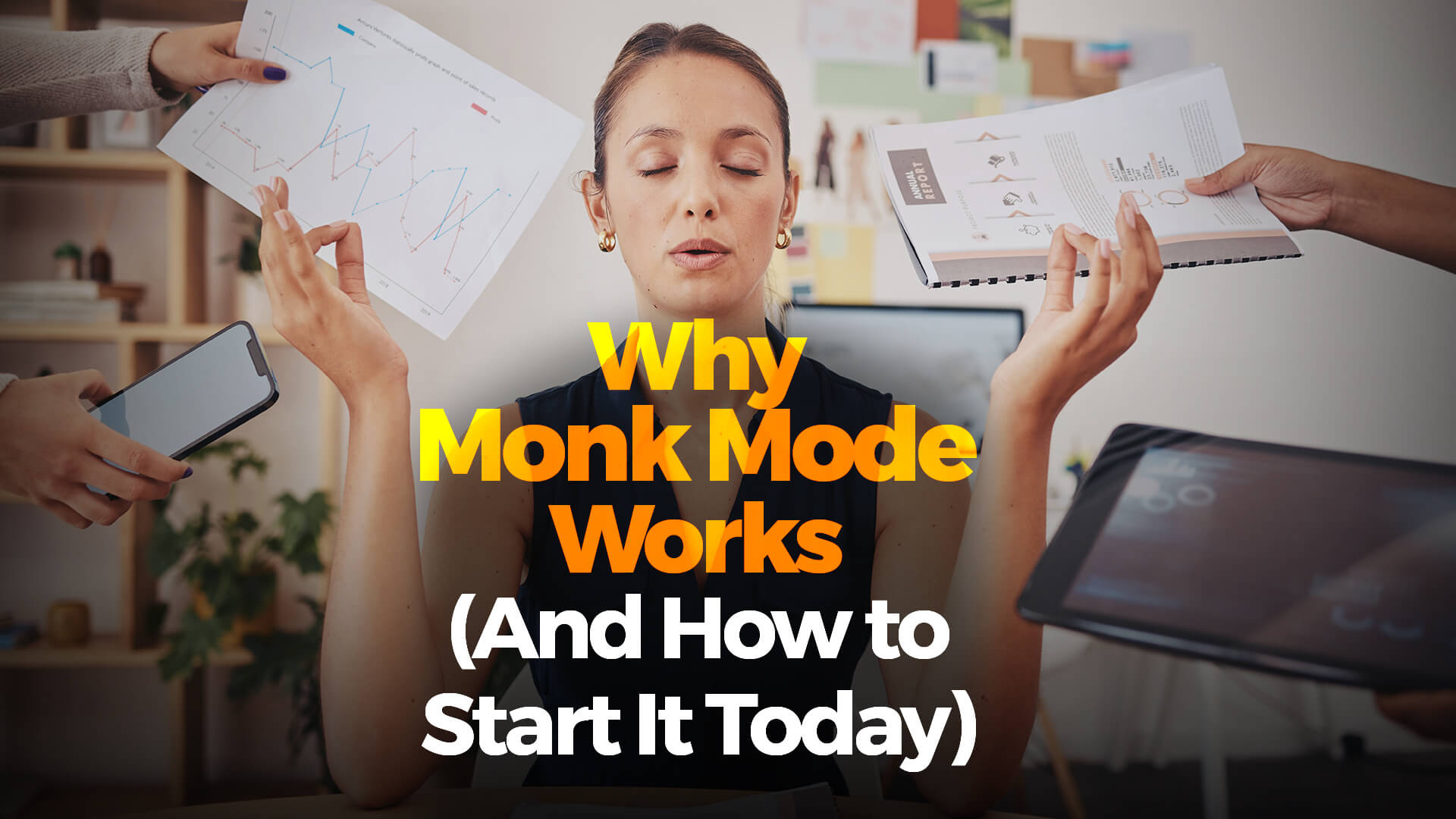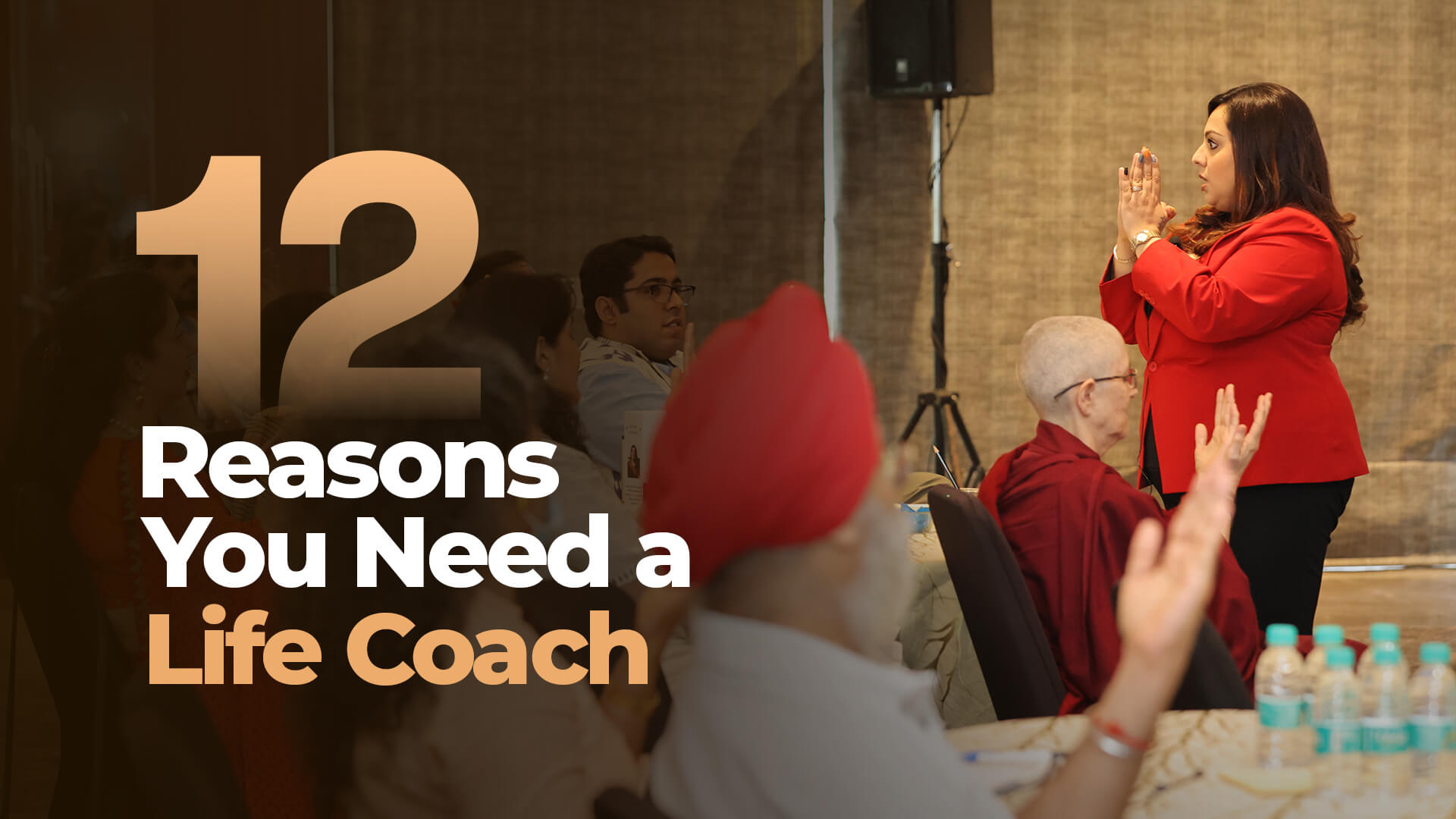Have you ever felt like your “gut” was telling you one thing, while your mind was racing in a million different directions, and you couldn’t figure out which feeling to trust? This is a common experience when dealing with intuition and anxiety.
Both of these emotions involve strong feelings that can easily influence your choices. However, they come from very different places. You can make better decisions, feel more grounded, and live more in tune with yourself if you learn to tell the difference between intuition and anxiety.
Let’s dive into what sets these two apart, how they affect you, and how you can better distinguish between intuition and anxiety.
What is Intuition?
Intuition is generally said to be the feeling that you get out of nowhere. It is commonly called gut feeling or the sense of knowing. The origin of this emotion is unknown. It is not based on a logical thought process, but rather an instant feeling or insight that seems to pop up from deep within.
Think of it as your inner navigation device. It points you toward what feels right without needing to analyze every detail. Intuition draws on your past experiences, subconscious patterns, and observations, helping you to make quick decisions without overthinking.
How to Spot Intuition:
- Calm & Clear
- In the Now
- Instant Insight
- Certain & Grounded
It’s like a whisper that feels easy to hear. Even if it’s telling you something difficult, intuition doesn’t yell or overwhelm, it’s usually a soft, confident nudge. It doesn’t scare or pressure you to make any decision.
Intuition is about what feels right in this moment. The emotion lies totally in the present. It doesn’t get tangled up in worries for the future or regrets about the past.
It hits you quickly and doesn’t require a lot of thinking or analyzing. It just feels “right.”
Intuitive feelings often bring a sense of “knowing.” There may not be a logical reason for why you feel a certain way, but it feels steady, even if it’s unexpected.
Example: Imagine meeting someone for the first time and instantly feeling comfortable around them. You can’t explain it, but something about their energy feels safe and warm. That’s your intuition speaking. It guides you easily and everything goes smoothly under its guidance.
What is Anxiety?
Anxiety is harsh, it is not gentle to anyone. Anxiety is an emotion that represents emotional chaos. It’s that gnawing feeling of worry, dread, or nervousness that can take over your thoughts and feelings. Unlike intuition, which is neutral and clear, anxiety is confusing and often tangled in fear, uncertainty, and stress. It tends to live in your head and thrive on imagining all the possible things that could go wrong. Anxiety is pessimistic and it takes away any calmness present inside you.
How to Spot Anxiety:
- Emotional & Fearful
- Future-focused
- Overthinking & Doubtful
- Uncertain & Distrustful
Anxiety doesn’t tiptoe in; it storms in, often making you feel panicked or overwhelmed. It might show up with a racing heart, tense muscles, or a pit in your stomach.
Anxiety loves to ask “what if?” and usually projects fears into future scenarios that haven’t happened yet (and often never will).
It makes you second-guess everything. Instead of offering a quick answer, anxiety drags you through every possibility and worst-case scenario.
Anxiety rarely feels clear. Decisions made from anxiety are riddled with doubt, insecurity, and that uncomfortable feeling in your gut that won’t go away.
Example: You get a message from your boss saying, “Let’s talk tomorrow.” Instead of thinking it might be a simple check-in, your mind races: “Did I mess something up? Am I in trouble? Am I about to lose my job? Is she gonna fire me?”
How to Tell the Difference Between Intuition and Anxiety
Intuition and anxiety can feel similar, but there are a few ways to tell them apart:
- Pay Attention to Your Body
- Clarity vs. Chaos
- Look at the Thought Patterns
- Present vs. Future
Intuition tends to bring a sense of peace or neutrality to your body. Even if it’s urging you to do something that scares you, it doesn’t cause a stress response. It is very calm and gentle.
Anxiety shows up physically with a fight-or-flight reaction. You might notice a pounding heart, tight chest, or a knot in your stomach. This feeling scares you and takes away your ability to think straight.
Intuition brings a clear, quick insight. It feels like “this is right,” and that’s that. It doesn’t take a lot of time to get you into action
Anxiety feels chaotic and heavy. It’s confusing, overwhelming, and hard to pin down to a single clear thought.
Intuition hits you once, and that’s it. You feel it, and you know. It doesn’t spiral into more thoughts or debate.
Anxiety is like a runaway train of “what if” and “but what about.” It spirals into more and leads to more overthinking.
Intuition is concerned with the present moment. It feels like, “Right now, this is what I should do.”
Anxiety lives in the future, constantly worrying about what might happen and imagining the worst-case scenarios.
How the Brain Handles Intuition and Anxiety
When you break it down scientifically, intuition and anxiety are processed differently in your brain:
- Intuition
- Anxiety
It’s believed to come from the right hemisphere of the brain, which is responsible for creativity and pattern recognition. Your ventromedial prefrontal cortex (vmPFC) plays a big role in processing your experiences, emotions, and past patterns to help you make quick decisions without a lot of conscious thought.
Anxiety activates your amygdala, which is basically the brain’s alarm system. It triggers your fight-or-flight response, creating fear and stress. This can overpower your prefrontal cortex, which handles logical thinking and decision-making, making it tough to get clear, rational thoughts.
A 2016 study published in Emotion showed that anxiety tends to narrow your focus, making you see threats everywhere. Intuition, on the other hand, allows you to access deeper, subconscious knowledge that helps you make decisions more smoothly.
How to Strengthen Intuition and Manage Anxiety
- Mindfulness Practices
- Journaling
- Body Scans
- Practice Quick Decisions
- Challenge Anxious Thoughts
Meditation, yoga, or deep breathing exercises help you stay in the present moment, making it easier to notice when a thought is intuitive or anxious.
When you’re confused about a decision, write down your thoughts. What feels like a calm insight? What thoughts spiral into worry? Over time, this will help you notice the difference between intuitive nudges and anxious noise.
Take a moment to mentally scan your body from head to toe. Notice any tension or discomfort. Intuitive feelings usually feel neutral or calm in the body, while anxiety shows up as tension or stress.
Start with small, low-stakes decisions (like what to eat for lunch or which book to read). Notice how your intuition guides you quickly and how anxiety may start to debate your choice.
When anxiety comes up, ask yourself, “Is this a fact or a fear?” and “Do I have evidence that this will happen?” By questioning anxious thoughts, you make more room for clear intuition to shine through.
When to Seek Help
If anxiety starts affecting your daily life or makes it hard to function, talking to a therapist or counselor can be a game-changer. Cognitive-Behavioral Therapy (CBT) is great for managing anxiety by helping you challenge and change unhelpful thoughts. You can also explore other holistic approaches like acupuncture, herbal supplements, or Mindfulness-Based Stress Reduction (MBSR).
Understanding the difference between intuition and anxiety is the key to making better decisions and feeling more at ease. Remember, intuition feels like a calm, clear knowing, while anxiety brings fear and doubt. With practice, you will be able to recognize both of these feelings more clearly and will make better decisions for your own good.
FAQs
Q1: Can intuition and anxiety feel the same?
Yes, they can. But intuition is usually calm and quick, while anxiety is fearful and chaotic.
Q2: Can anxiety block intuition?
Absolutely. Anxiety clouds your judgment and makes it hard to hear that calm, clear voice of intuition.
Q3: Is intuition always right?
Not always, but it tends to be more accurate when it comes from experience and a clear head. It’s still important to consider other factors and not rely solely on your gut.
Q4: How can I strengthen my intuition?
Practices like meditation, mindfulness, and journaling can help you get more in tune with your intuition.
Q5: Is anxiety always bad?
Not necessarily. Some anxiety is normal, especially in stressful situations. But if it becomes chronic and impacts your life, it’s time to seek support.
Q6: Can intuition and anxiety show up at the same time?
Yes, they can. A high-stakes situation can trigger both. But by learning to notice how they each feel, you can learn to trust your intuition more and calm your anxiety.
Reach Dr. Chandni’s support team at +918800006786 and book an appointment.










